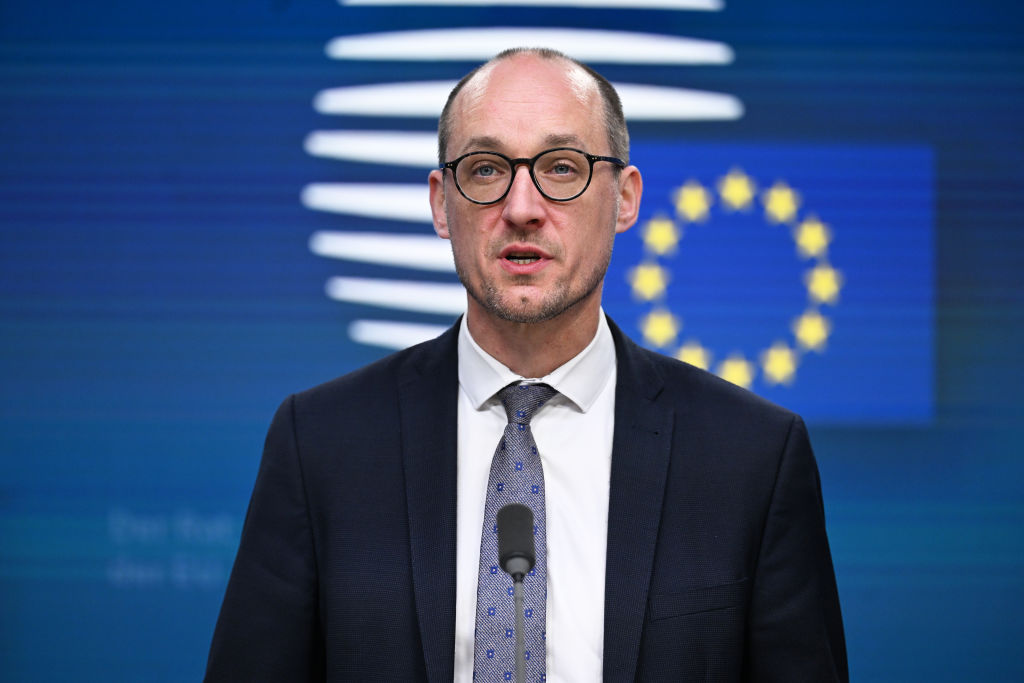The European Commission is struggling to allay fears over its plan to use hundreds of billions of euros in immobilised Russian central bank assets to fund a “reparation loan” to Ukraine.
Earlier this month, Commission President Ursula von der Leyen proposed using cash balances associated with €210 billion in Russian central bank assets in the EU – frozen shortly after Moscow’s full-scale invasion of Ukraine in 2022 – to support the war-torn country’s immediate funding needs. The loan would only be paid back by Kyiv once Moscow pays reparations to Ukraine for damage caused during the conflict.
However, Belgian Deputy Prime Minister Vincent Van Peteghem suggested on Friday that the scheme could be tantamount to confiscation – which, he noted, would be technically illegal and could threaten the financial stability of the eurozone.
“I think that there are still a lot of uncertainties and also a lot of risks,” Van Peteghem told reporters ahead of a meeting of EU finance ministers in Copenhagen, adding he remained “sceptical” of the current proposal.
Roughly €190 billion of the assets are held in Euroclear, a Brussels-based clearinghouse, making Belgium a key player in the discussion. Together with France and Germany, Belgium has long resisted confiscating the assets – a move supported by many Eastern EU member states.
Mutual exposure
At a press conference on Friday, European Central Bank President Christine Lagarde also called for more detail on the Commission proposal.
“I think all member states involved in the process will want to see something in writing,” Lagarde said. “That’s the only way to appreciate the trigger, the liabilities, the exposure, and to make sure that… compliance with the international law and respect of the sovereignty [of the euro] are actually respected.”
Standing alongside Lagarde, EU Commissioner for Economy Valdis Dombrovskis said that the Commission proposal is not tantamount to confiscation, but instead involves the use of cash accumulated by the assets during their period of immobilisation.
Lagarde herself even asked Dombrovskis a question at the press conference, enquiring whether the Commission’s plan represents “a substitution of the claim on cash to a claim on eurobonds”?
Dombrovskis did not answer directly, though he noted that a recent meeting of EU foreign ministers had made it “clear that there is no unanimity among EU member states concerning… confiscation”.
“Our proposal falls short of that,” he added.
Later on Friday, von der Leyen said the EU executive’s proposal for the reparation loan would arrive “soon”.
“The assets themselves will not be touched,” she said.
(vc)
